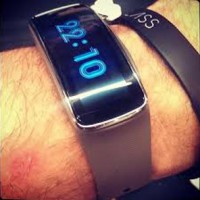Attitudes about wearable technology are changing
- Details
- Published on Tuesday, 21 October 2014 17:39
- Written by PRNewswire
Attitudes about wearable technology are changing, according to a new study from Wearables.com and The Center for Generational Kinetics.
The national study reveals that more Americans believe wearables are here to stay. The study and report titled, The Unexpected State of Consumer Wearable Technology, exposes an untapped opportunity available for brands and technology providers to develop wearables that benefit users in both their personal and work life.
"Our study revealed that consumers are looking for smart technology that will help improve their overall lives and that they would feel comfortable sharing personal information if it offered a better user experience," said Luis Felipe Rincon, CEO of Wearables.com. "Traditional thinking is that consumers would never agree to share their information, such as location, with brands and the like, but this national research shows that consumers — especially Millennials — would share their location and much more. In fact, what we found is that wearables may be the tipping point that unlocks the next advertising opportunity for brands."
While consumers have long shown a great willingness to exchange personal information like an email address for benefits, geo-location sharing has mostly lagged behind. Since geo-location is one of the core functional benefits imbedded in many consumer wearable devices, this may be why consumers have become so much more willing to share this data.
Some of the surprising data the research study found related to privacy and wearables includes:
- Many of those surveyed would provide information to receive notifications about events or concerts (18%) or stores or restaurants near them that they'd enjoy (18%), learn the real-time location of their friends (15%), or gain entrance to an event without having to show an ID or ticket (15%).
- A majority of Americans would be comfortable divulging information about themselves anonymously to their favorite stores (60%), a product brand (56%), or an app (46%).
- Millennials are more likely than non-millennials to feel comfortable sharing their information anonymously with the government (40% vs. 25%), anyone on the Internet (35% vs. 20%), or their employer (30% vs. 16%).
In addition to shifts in consumer privacy, the research reveals many other interesting and useful trends for consumers, OEMs, fitness and fashion brands, and retailers. Some of the findings include:
Nearly two-thirds of those surveyed have already considered purchasing a wearable item, with more men than women motivated to use wearable technology if it made them appear to be smarter or more attractive.
Of those surveyed, consumers in the millennial generation are more likely to share personal information about themselves and are more likely than non-millennials (77% vs. 54%) to considered purchasing a wearable item.
Americans would be interested in trading personal information, such as where they shop, how often they exercise, or where they are located, in exchange for benefits that could improve their shopping experience.
Nearly one in five would exchange information to earn rewards every time they walk into a store (19%), receive notifications about deals at a store they're in (19%), or get recommendations for items they'd like based on past purchases or recent searches (18%).
In addition, more than one-third of social media users would be open about their purchasing habits, such as what stores they visited (48%), or what they purchased online (34%).
The survey uncovered that innovative companies creating smartwatches and activity trackers are likely to revolutionize the way Americans receive information and think about their health and will influence the adoption of wearables.
Americans who would want a co-branded wearable device are most likely to crave Nike smart clothing (37%), Ray Ban smart sunglasses (36%), a Rolex smartwatch (33%), or a Canon wearable camera (30%), if they existed. In fact, one-third (33%) would want to wear a piece of fashionable jewelry that doubles as a device with Internet access.
To learn more about the new research and access the complete report, The Unexpected State of Consumer Wearable Technology: Surprising New Research on U.S. Consumer Attitudes Towards Wearable Technology Across Generations, visit www.wearables.com.


















































